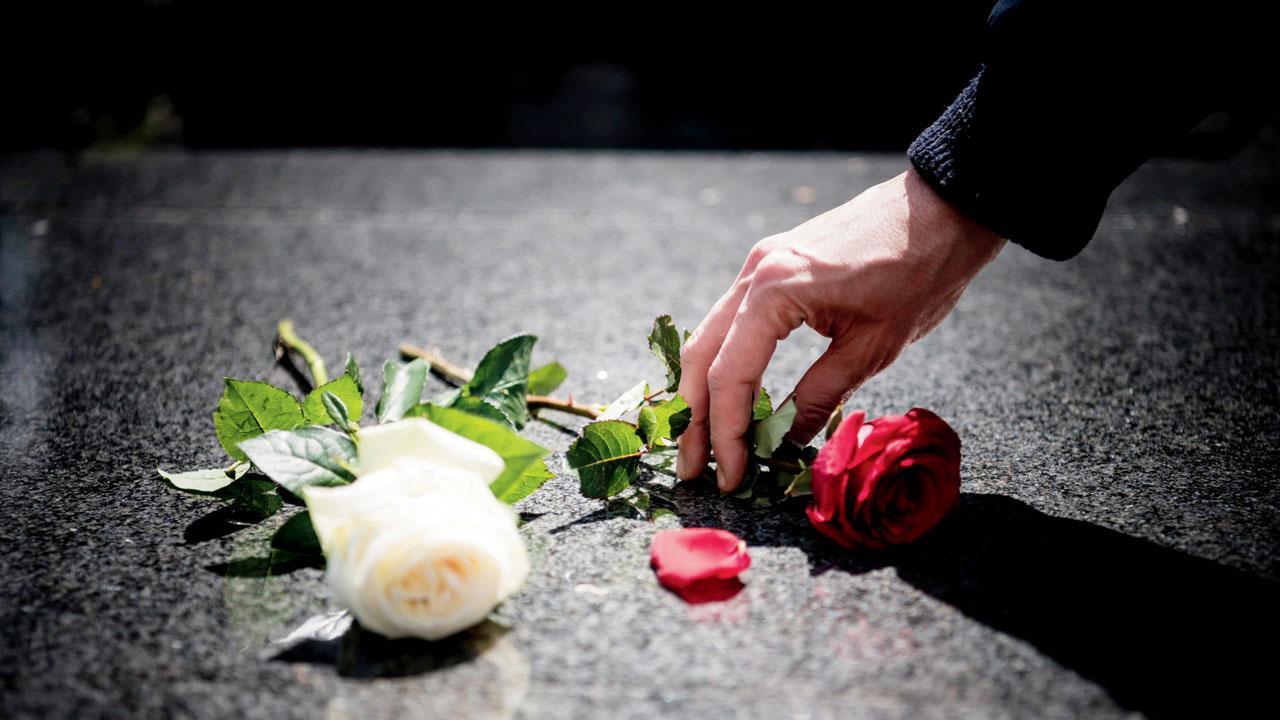Impossible to fully express loss of a loved one. And yet expression may be a great way to heal

Ancestrally we’ve turned grief from death into a ceremonial process, with designated days, to distract the closest ones from the onslaught of the blinding pain, with practicalities of social rituals that follow. Representation pic
In a letter to his friend, whose wife had passed on—filmmaker Sudhir Mishra recalls this from approximate memory—the great Ghalib wrote, “Doosron ke marne par gham woh hi manayein, jo khud na marne waale hon.”
ADVERTISEMENT
Meaning, only those must mourn, who won’t die themselves! Which is a thought the existentialist Ghalib may be capable of. What of you and me, whose Facebook has felt like an intermittent, virtual graveyard over the past month, due to Covid-19?
Virtual, because even an individual/group hug from a world socially distant has become an unattainable luxury. Almost everyone I know has dealt with this. Making this the worst phase in human history.
We’re left to descend separately into a collective funk, where death anyway is never the end of a life—but along with it, potential memories, shared hopes and future, and a part of each of us connected, that never returns. They’re gone, but you’ll never be the same.
Think I, sort of, know how to deal with the loss of someone not so close—just assume they’re still there. It’s not like you would’ve met them that often, in any case. Denial = acceptance.
How does one deal with grief; do you know? I don’t. Ancestrally we’ve turned grief from death into a ceremonial process, with designated days, to distract the closest ones from the onslaught of the blinding pain, with practicalities of social rituals that follow.
The deceased is the star at the centre—usually, third time in their life since birth and wedding. Only that they’re not there to see a huge gathering of extended/close relatives (even neighbours in a village) in their honour—many out of social obligation; several out of love, to group together into a huddle and share sorrow that of course befalls all, but never equally.
Does it help those most hit? I suspect so. Better than being alone in grief, surely. Over generations of mass migration/urbanisation, the social network has got rewired to make the friend, the closest fellow-traveller—after immediate family, of course. You can pick/find that friend among near/distant relatives, colleagues, schoolmates, cousins, social circle, strangers, playmates, dates…
In that melee of the bereaved, the lost loved one morphs into mythology—the WhatsApp stories shared heighten emotions of the moment, but does this journal of positive memories assist with handling irreversible heartache, too? Have been on it. Genuinely hope so.
What does feel true, they say, is that you die twice; the second time, when you’re forgotten. Until then, you’re around, just not alive. These memories, we’re told, come and go in flashes, for long; the intensity only reduces with time.
Which is probably why, again, they say, time heals. But what’s time but life itself? And there is a point when we won’t live. Until then, we are alive—so how to deal with bereavement, in that moment?
I’ve been looking up the Internet, the most common stuff in it are the seven stages of grief. Of which only the first makes sense—that is ‘shock/denial’; and therefore, helplessness that will follow as response. Subsequent stages, such as anger etc, seem too calculative. If not deeming humans as an algorithm designed to eventually attain ‘acceptance/hope’.
There is no hope in death—of a part of you. This too shall not pass. So I find this point made by actor Kabir Bedi, in his recent autobiography—about his psychic-healer father, late Baba Bedi. The Bedis are direct descendants of Guru Nanak, the founder of Sikhism.
Italy-based Bedi Sr’s philosophy centred on humans essentially being creative souls, looking for expression—it’s unexpressed creativity that creates disease. Creative expression therefore could be a momentary release for grief.
Anyway I hum a song, when stressing about something. But it feels different to watch a 24-year-old sing ‘Jaane tu ya jaane naa’ to his late mother, on Instagram, describing his relationship with both the mother he just lost, and the song they loved.
Along with a graveyard, Facebook/Twitter feels like a massive funeral, where we are all in it together. I read with renewed care long, emotional posts about loss of friends and colleagues; what they said, did, heard, saw. What they were like.
The same way we devour obituaries of public figures. But not quite. Sometimes it’s poetry; many a time a collage of candid pictures; quite often, simply a string of adjectives. More dedicated sites/projects exist. This is why art was invented—doesn’t matter how you express.
Sufficiently inspired, for the first time in my life, I write a piece (a letter, not an email)—which isn’t for work. It’s for me; and for my best friend, who passed on last week—delivered to his son, who can read it when he’s older. Felt lighter? Little, for sure.
Mayank Shekhar attempts to make sense of mass culture. He tweets @mayankw14.
Send your feedback to mailbag@mid-day.com
The views expressed in this column are the individual’s and don’t represent those of the paper.
 Subscribe today by clicking the link and stay updated with the latest news!" Click here!
Subscribe today by clicking the link and stay updated with the latest news!" Click here!






